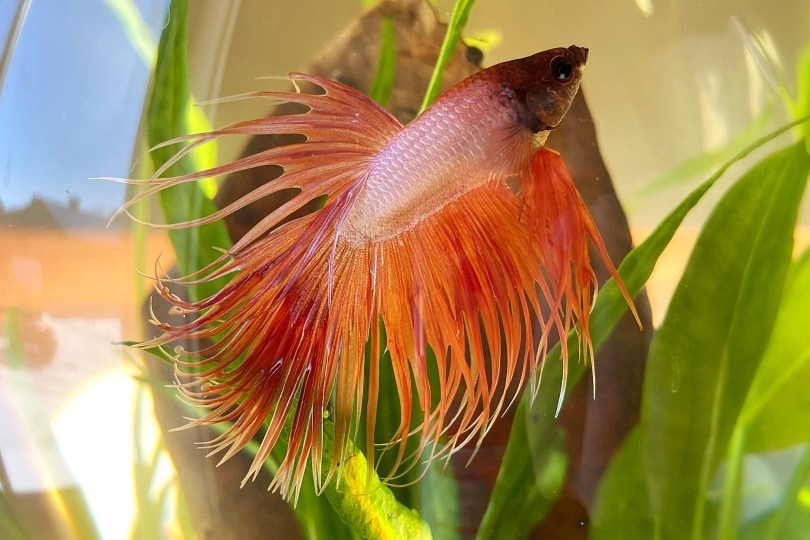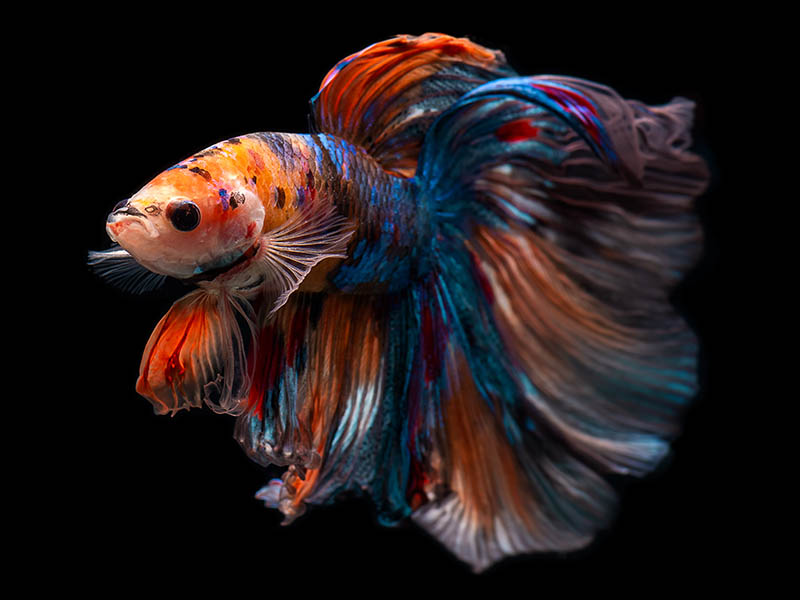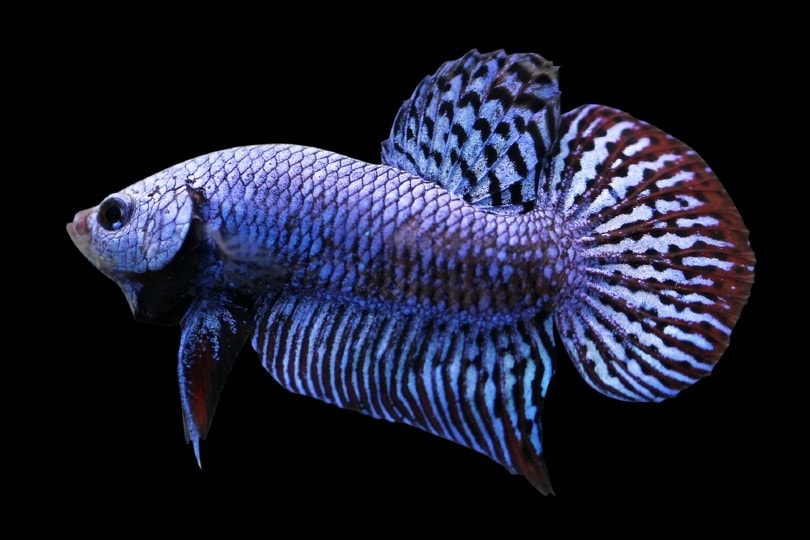Betta Fish Swimming Erratically: 6 Vet-Approved Reasons
Updated on
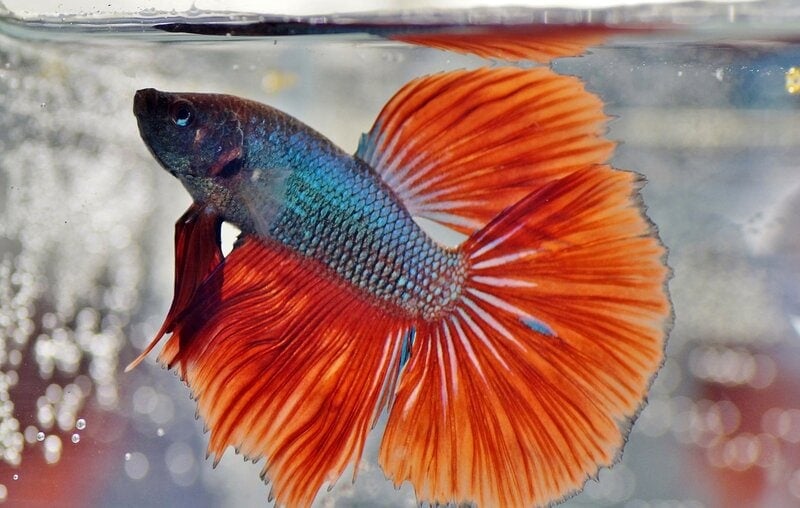
If your betta fish is displaying an unusual behavior of erratically swimming around the tank, it is typically a cause for concern. Betta fish are not good swimmers due to their long and flowing fins that do not help with their agility in the water. There are several different reasons your betta fish may be swimming erratically throughout the water.
This behavior is usually accompanied by other signs that are easily identifiable. Getting to know the natural behaviors of your betta fish is a good idea so that you can catch any issues during an early stage.
There may be different reasons as to why your betta fish is swimming erratically through the tank, whether they are doing it out of nowhere or displaying it as a frequent behavior.
How to Tell If Your Betta is Swimming Erratically
Abnormal swimming patterns with your betta fish are the first sign that something is bothering your fish. The betta may swim in circles, drift in the current, or swim into things. These are all warning signs that there is something very wrong with your betta and treatment should be done immediately.
Your betta fish may begin to swim unnaturally fast in an irritated manner around the tank. They will generally bump into other objects in the tank or continuously swim into the glass. Scratching against objects typically means that there is a parasite on their body that is irritating them, and they use erratic swimming to relieve their symptoms. Betta fish are slow and gentle swimmers which makes this new erratic behavior alarming. A fish that is suffering from severe health problems will also swim abnormally.
If your betta fish is twitching while zooming around the tank and purposely bumping into things, you may be dealing with a parasite outbreak in the tank.
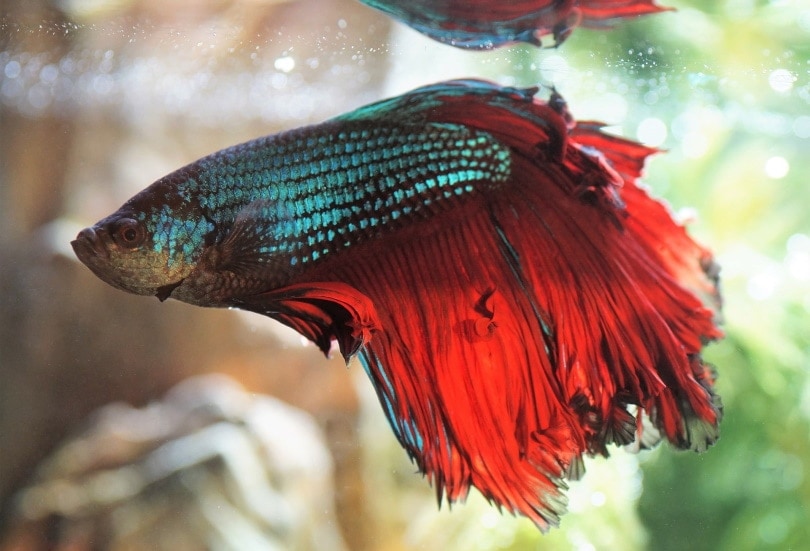
The 6 Reasons Your Betta Fish is Swimming Erratically
Each reason has specific signs that come with the diagnosis. This makes it easier to compare your betta’s signs and determine what the main cause of the erratic behavior is.
1. Parasites
Parasites can affect several different areas of a bettas body. They typically irritate the skin of the fish and cause major discomfort. The affected area may also become swollen or red and if you look closely, you may see where the parasites are eating away at the skin. This is common if you recently got your betta, or if you added in a new fish that carried the specific type of parasites.
Fish with parasites typically have a very thick slime coat that’s easily noticeable. As parasites are contagious, the signs might spread to other tank mates too.
- Velvet: Your betta may appear like it’s covered in a fine gold or rust-colored “powder”
- Ich: Your betta will be covered in white spots – this disease is relatively rare in tropical fish but can present itself in some circumstances. It is sometimes referred to as “ick”.
- Epistylis: The signs of this disease are very similar to Ich, however, this disease typically targets the gills of a fish, and may even appear on their eyes.
- Internal parasites: The signs of these parasites are more subtle, but the most obvious sign of these parasites is abnormal-looking fish poop (different color or consistency).
- Anchor worms: These are easily spotted because adult females are relatively large (close to an inch in length). They burrow in your fish’s skin and can be seen dangling along their bodies.
- Flukes: Gill flukes attack a fish’s gills and the stress associated with their presence often results in swollen gills and erratic breathing and swimming patterns.
Bettas may be prone to other parasites too (such as fish lice, also known as Argulus spp.), however, these are a very rare occurrence in pet fish.
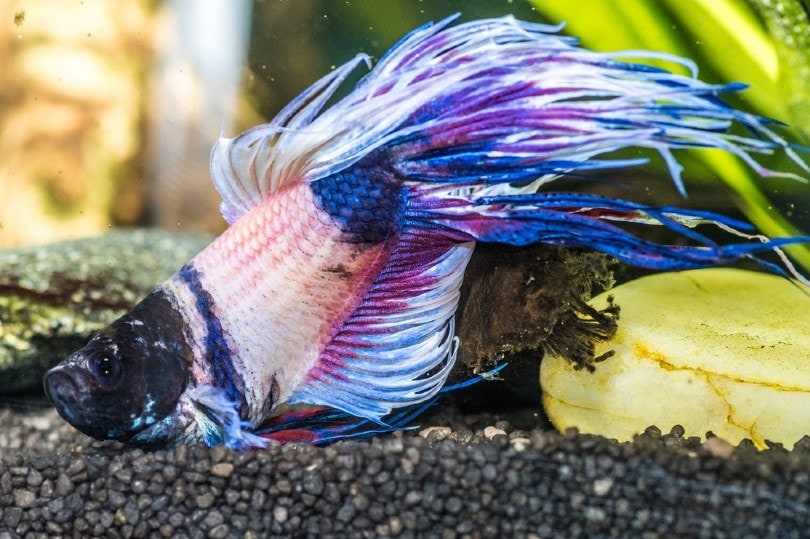
2. Stress
If your betta is stressed from a small aquarium, it will swim erratically through the water out of irritation. Small aquariums like bowls, bio-orbs, and tanks under 5 gallons can cause this behavior to occur. Your betta may also be stressed if they are placed in an aquarium that is too cold or too warm for them, or if they are being bullied by aggressive tank mates. Stress can also happen as a result of an overstocked aquarium.
3. Swim Bladder Disorder
Bettas may at times experience issues with their swim bladder, an organ that assists in buoyancy and orientation while swimming. When your fish is experiencing swim bladder dysfunction, they may swim erratically because they are unable to properly control their buoyancy. This can lead to them moving in unusual ways, including swimming in circles and upside-down.
4. Nervous System Disorders
These will cause fast whirling or circling behaviors. They may be constant or only occur a few times a day. Some nervous system disorders may be inherited genetically, though this is very poorly understood in fish. Injury to the spinal cord or brain and other associated nervous system components (such as the brainstem) may also result in erratic, uncoordinated swimming patterns.
5. Poor Vision
This is associated with vision issues like cataracts or corneal damage that can be both hereditary and the result of a nutrient deficiency. If there is any excess gas in the water or fluid retention in the betta’s body can cause exophthalmos. However, at most times, vision loss or impairment doesn’t lead to erratic swimming but rather reduced swimming. If vision loss is accompanied by erratic swimming, there are usually other issues causing the swimming issues.
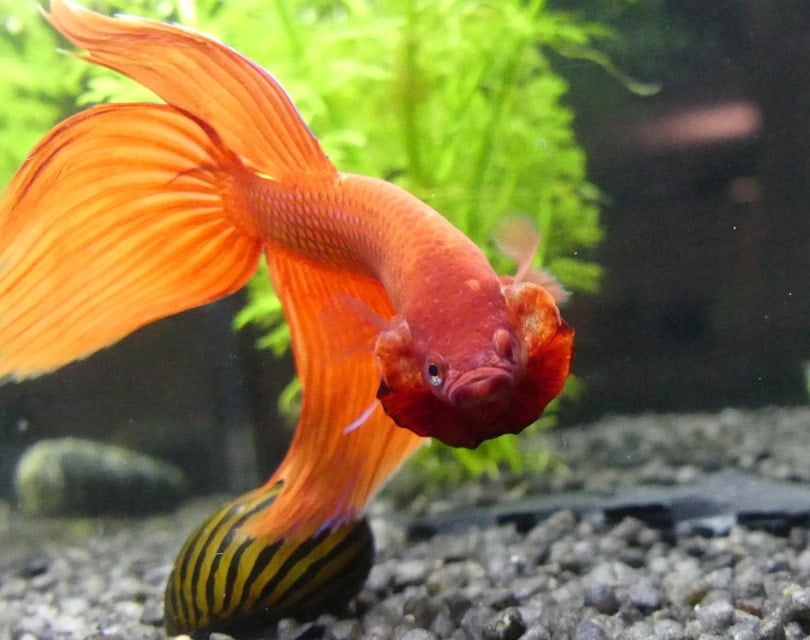
6. Poor Water Quality
High levels of ammonia, nitrite, or nitrate can burn the betta fish and they will swim around the tank or attempt to jump out to relieve their discomfort.
For bettas, your water parameters should be as follows:
- Ammonia: 0 parts-per-million (ppm)
- Nitrite: 0 ppm
- Nitrates: under 15 ppm, ideally under 10 ppm.
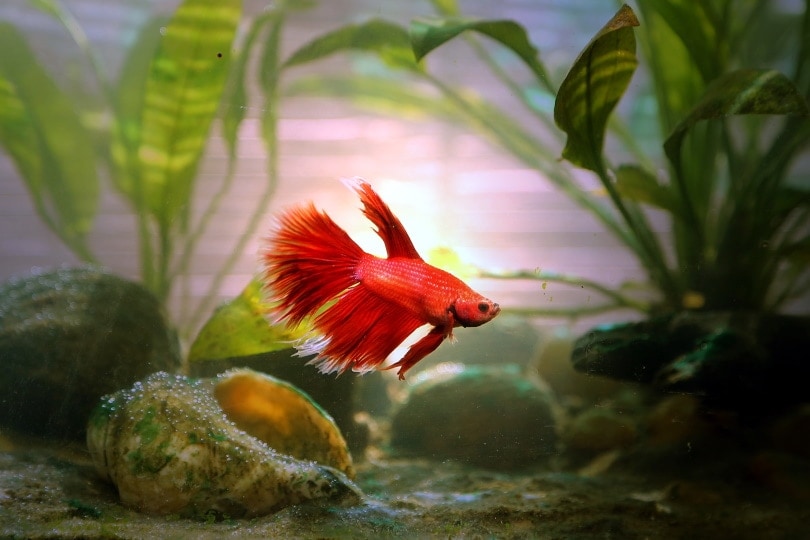
Aggressive Swimming
Sometimes your betta can see their reflection in the glass which will cause them to flare and chase the reflection. This sometimes cannot be helped and will cause the betta to become stressed or tired from constantly flaring. Adding in lots of cover in the form of live plants or an opaque backdrop in the aquarium can help to divert your betta’s view of its reflection.
Treatment Plans
If you think that your betta is swimming erratically because of a disease or parasite, then they should be treated immediately using a high-quality medication from your local fish store that is tailored to the specific signs your fish is experiencing. Neurological disorders should be discussed with your aquarium veterinarian.

What Are Betta Fish Zoomies?
This is not usually a cause for concern and is displayed as a betta fish swimming fast towards you because they identify you as a food source. This shows that they are excited and know that they are going to be fed. Zoomies are not a form of erratic swimming, however, they do swim fast toward the source of excitement and the form in which they swim is normal.
Conclusion
A betta swimming erratically can be both good and bad behavior. Determining the cause of the behavior is going to be your best option. Only treat a betta for swimming erratically if you have found the cause of the behavior, whether it is from a parasite or an internal problem.
We hope that this article helps you to determine why your betta fish is swimming erratically and how you can deal with the specific issue that is causing this problem.
Featured Image Credit: Ivabalk, Pixabay




